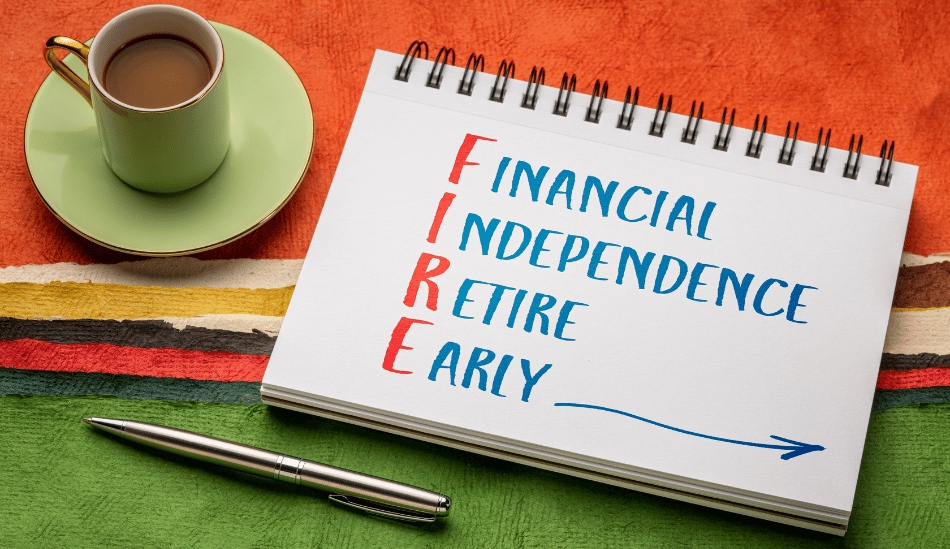Relocating to another country can be a life-changing experience, filled with new adventures, opportunities, and growth. But it also comes with a lot of financial uncertainty especially in the early stages. From visa fees and flight tickets to housing deposits and emergency needs, the costs can add up quickly. That’s why building a financial safety net before moving abroad is essential. With the right preparation, you can avoid debt, reduce stress, and make your transition smoother and more stable.
This detailed guide walks you through everything you need to do to build a reliable financial safety net before relocating internationally.
Know Your Total Moving Costs
Start with a full breakdown of all your moving expenses don’t rely on rough estimates. Sit down and calculate what the move will actually cost from start to finish. This will give you a clear savings goal and help you avoid surprise expenses later.

Key expenses to include:
- Visa and Immigration Fees: This may include visa applications, biometric services, translation of official documents, courier services, and, in some cases, legal consultations.
- Flights: Consider the cost of a one-way ticket, extra luggage charges, and flexibility in case of travel changes or cancellations.
- Initial Housing Costs: Budget for a security deposit, first and last month’s rent, and potential temporary accommodation like a hotel or Airbnb while house hunting.
- Shipping and Moving Costs: Whether you’re sending a few boxes or hiring international movers, costs can add up quickly. Include customs duties and packaging.
- Arrival Essentials: These are immediate expenses upon landing local SIM card, grocery basics, weather-appropriate clothing, kitchen tools, transportation cards, and small furniture or household goods.
Use online relocation calculators and cost-of-living tools like Numbeo to estimate how much you’ll spend monthly in your destination country.
Read: Level Up Your Skills: Top 5 Free Online Certifications to Boost Your Resume
Create an Emergency Fund
Having an emergency fund isn’t just about being safe it’s about having the freedom to settle in without panic. Unexpected issues like delays in employment, medical problems, or housing issues can arise at any time.
- How Much to Save: Aim to set aside 3 to 6 months of essential living expenses based on the cost of your new location. This includes rent, utilities, food, transport, insurance, and basic daily needs.
- Where to Keep It: Use a high-interest savings account that offers easy online access. Choose an account that you can log into from abroad without restriction.
- Liquidity Matters: Avoid tying this money up in investments or fixed-term accounts you’ll need it to be readily available in case of emergencies.
This fund acts as your financial breathing room and ensures you won’t need to borrow money or rely on credit cards when something unexpected happens.
Pay Off High-Interest Debts Before You Go
Carrying debt with you to another country can create unnecessary pressure, especially when your financial situation is changing.

- Tackle High-Interest Debts First: Focus on credit cards, payday loans, and other expensive debt. If you can’t clear them completely, reduce the balances as much as possible before your move.
- Issues with Overseas Payments: Some financial institutions may block foreign transactions for security reasons. You might also face delays or fees in making regular payments from abroad.
- Currency Fluctuations: If your debts are in your home currency but your income becomes foreign, exchange rates could increase your repayment costs unexpectedly.
Reducing your financial obligations gives you more flexibility as you adjust to a new cost of living and income structure.
Set Up International Banking Access
Make sure you can access your money from the moment you land. Sorting this out in advance prevents frustration, delays, and extra fees.
- Global-Friendly Banks: Choose banks or fintech platforms that support multiple currencies and work well internationally. Options like Wise (formerly TransferWise), Revolut, and HSBC Global are great for expats.
- Minimize Fees: Look for banks that offer free international ATM withdrawals or low foreign exchange fees. These small charges add up over time.
- Strong Digital Access: Your bank should have a reliable online portal or mobile app that lets you transfer money, pay bills, and manage your finances from anywhere.
Don’t forget to notify your current bank that you’re moving abroad, so your account isn’t flagged for suspicious activity.
Keep Backup Access to Funds
Losing access to your main card or account can put you in a serious bind, especially in a new country.
- Spare Bank Card: Carry a second debit or credit card from a different bank. Keep it stored in a separate bag or secure location.
- Cash on Hand: Bring enough local currency to cover at least your first week transport, food, and housing essentials. You can exchange money at the airport, but better rates are often found at local banks or currency exchange centers.
- Alternative Payment Methods: Set up digital wallets like PayPal, Apple Pay, or Google Pay linked to your main accounts for faster transactions and online purchases.
Consider also giving a trusted family member access to a backup account in case you need emergency help from home.
Read: Best Budgeting Apps for New Immigrants in the UK to Manage Your Finances
Research Job Security or Remote Income Options
Moving without a stable income source is risky. Whether you’re relocating with or without a job, have a clear plan for how you’ll support yourself financially.

- Remote Work Setup: If possible, start a remote job or freelance gig before you leave. Platforms like Upwork, Fiverr, and FlexJobs can help build income streams you can take with you.
- Existing Employer Rules: If transferring within your company, check how your move affects your contract, taxes, health benefits, and whether you’re allowed to work remotely from another country.
- Prepare for Delays: Even if you land a job quickly, your first paycheck might take weeks. Having a plan for that gap can keep you out of financial trouble.
Having reliable income or a backup plan ensures you’re not scrambling to find work as soon as you arrive.
Consider Insurance Before Departure
Insurance protects your savings from being wiped out by one unexpected incident. Get covered before you leave to avoid high costs later.
- Health Insurance: International health plans cover medical care abroad and may be required for visa approval. Look for policies that include emergency care, hospital stays, and prescriptions.
- Travel Insurance: This covers cancelled flights, delayed baggage, lost items, and trip interruptions. Often bundled with credit cards, but make sure the coverage is sufficient.
- Contents and Renters Insurance: If you’re bringing expensive electronics, jewelry, or gear, insure them against theft or damage during transit and in your new home.
Shop around and compare premiums, deductibles, and coverage areas. Some plans may offer better value based on your destination.
Build a Budget Plan for Your First 6 Months
Your spending habits will change once you move. A budget helps you stay in control, track where your money is going, and build good financial habits from day one.
- Detailed Monthly Plan: Write down your estimated costs for rent, groceries, transportation, phone/internet, leisure, and insurance. Factor in exchange rates if you’re earning in one currency and spending in another.
- Buffer for Adjustments: Your cost of living may vary in the first few months, especially as you explore and learn the local economy. Plan for extra flexibility early on.
- Savings Built In: Don’t stop saving once you move. Include a savings goal in your monthly budget to prepare for future needs or emergencies.
Use budget apps like YNAB (You Need a Budget), Mint, or simple spreadsheets to stay organized.
Read: How to Maximize Your Chances of Immigration Success
Keep Financial Documents Organized and Accessible
Important documents can be hard to replace abroad. Keeping them accessible and secure can save time and headaches when applying for housing, visas, jobs, or bank accounts.
- Digital Backups: Scan documents and store them securely in encrypted cloud storage like Google Drive, Dropbox, or OneDrive. Use two-factor authentication to protect your files.
- Paper Copies: Bring physical copies of essentials, stored in a waterproof folder. Keep a separate folder for travel.
- What to Include: Recent bank statements, employment records, tax returns, lease agreements, credit reports, medical records, and identification like your passport or driver’s license.
Being organized reduces delays and confusion when dealing with local authorities or institutions.
Know the Tax Rules in Both Countries
Taxes don’t disappear when you move. In fact, they can get more complex. You may be responsible for reporting income in your home country, host country, or both.
- Understand Double Taxation Rules: Check whether your two countries have a tax treaty to avoid being taxed twice on the same income.
- Filing Obligations: Some countries require tax filings even if you live abroad (e.g., the U.S.). Missing deadlines could lead to fines or legal issues.
- Seek Expert Help: A tax consultant who specializes in international or expat tax law can guide you through reporting rules and deductions you may be eligible for.
Building a financial safety net before moving abroad isn’t just a smart choice it’s essential. It protects you from unexpected expenses, helps you adjust smoothly, and gives you peace of mind as you start a new life. With a clear budget, savings, and access to financial resources, you can focus on enjoying your new environment and making the most of the opportunity. Proper preparation today means fewer worries tomorrow.


